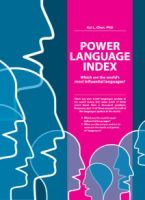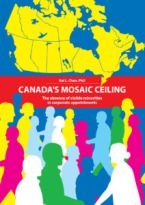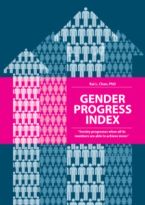
How the English Language’s Disproportionate Influence Skews Global Narratives
No one questions English’s status as the world’s go-to language for business, tech, tourism and academia, but that popularity has also made it disproportionately influential on news. In a chapter of Hostwriter’s Unbias the News: Why Diversity Matters for Journalism, journalist, writer and managing editor of the Global Investigative Journalism Network Tanya Pampalone looks at how English’s prominent status can lead to skewing of entire narratives. We break down an excerpt of that chapter published for GIJN and look at how this inequality also means missed opportunities for interactions between the non-native and non-English speaking world, creative or otherwise.
By the Numbers
Kai Chan, a distinguished fellow at the INSEAD Innovation and Policy Initiative, put together the Power Language Index in 2016, which measures which languages in the world hold the most influence based on five key factors.
- (G)eography: countries spoken, land area, tourists (inbound)
- (E)conomy: GDP, PPP, Exports, FX market, SDR composition
- (C)ommunications: Native speakers, second-language speakers, language family size, tourists (outbound)
- (K)nowledge & Media: Internet content, feature films, Top 500 universities, academic journals.
- (D)iplomacy: United Nations, International Monetary Fund, World Bank, Supranational Organizations (SNOs).
Based on these factors, Kai presented the world’s top 10 languages, their respective number of native speakers and their score for each factor:
- English: 460 mil (G1, E1, C1, K1, D1)
- Mandarin: 960 mil (G6, E2, C2, K3, D6)
- French: 80 mil (G2, E6, C5, K5, D1)
- Spanish: 470 mil (G3, E5 C3, K7, D3)
- Arabic: 295 mil (G4, E9, C6, K18, D4)
- Russian: 150 mil (G5, E12, C10, K9, D5)
- German: 92.5 mil (G8, E3, C7, K4, D8)
- Japanese: 125 mil (G27, E4, C22, K6, D7)
- Portuguese: 215 mil (G7, E19, C13, K12, D9)
- Hindi: 310 mil (G13, E16, C8, K2, D10)
These numbers don’t include the number of non-native speakers. In the case of English, Kai’s research reports over 500 million people who speak it as a secondary language. Other figures place the total number of English speakers at between 1.5 and 2 billion people.
The Perceptual Impact of English
This staggering influence of a single language that came about through various blends of colonialism, commerce, religion, media, and education, extends into many industries including that of news.
In their analysis of 54 million news items from 4,708 news sources in 67 countries in 2015, researchers Lei Guo and Chris J. Vargo found that wealthier countries both attract most of the world news attention and are also more likely to decide how other countries perceive the world.
Miraj Chowdhury, the Bengali editor for the multilingual Global Investigative Journalism Network (GIJN), points out how two newspapers in Bangladesh have circulations of over 500 million, yet the English-language Daily Star with only 50 million dominates the international narrative about that country.
Quality withstanding, it represents a situation where a single source disproportionately shapes a perspective not because of what it does, but simply because of what it is. This dynamic has profound effects on both the news and journalism industries:
- A story isn’t a story until it surfaces in English: Journalists Ben Nimmo and Aric Toler wrote about the Russian journalists who exposed the troll factory back in 2013, before it was involved with American politics.
- Awards can’t judge non-English assess properly: Unathi Kondile, South African editor of a Xhosa paper, points out how judges can only properly assess Afrikaans or English written content. This means submitting Xhosa content for consideration becomes a waste of time.
- Applications based on English ability, not talent: Journalists have to submit applications to international conferences and fellowships in English, which does not reflect their journalistic talent but does affect their chances.
- Translations skew perspective towards English readers: Journalists quoting non-English-speaking subjects might be forced to translate terms that have no common or accurate English equivalent. Similarly, emphasizing interviews conducted in English can mean a less than accurate picture.
Linguistic Privilege
Seeing the ‘p’ word might trigger a few eye rolls, but in the context of a globalized world, this one can’t be ignored because it applies to basically anyone reading this analysis and because it remains a source of inequality far beyond the world of journalism.
Linguistic privilege is yet another package of benefits we can unwittingly receive whether we’re native or near-native speakers of English. It’s also one we’re less likely to feel because after all, we’re all speaking the same language, right?
Yet we aren’t always speaking it on the same level. When we interact with people who are non-native speakers (especially with a poor command of the language) or people with impeded speech, it’s easy to forget how uneven things are. To give some examples of how “not all languages are created equal.”
- “A language is a dialect with an army and navy”: Many regions have a prestige variant of language that is still held in a high standard such as Received Pronunciation (the “Queen’s English”) for the UK and General American English within the States. While there are actually many accents and dialects of English, only a handful that almost always includes those two, command the same impact. This is why they dominate ESL materials and the aspirational goals of many learners.
- The cool factor: If you take English, pair it with digital media and package it with modern aesthetics, it makes for a very effective vector for spreading language and its associated culture (and potentially politics) — and for having it be received more readily. It goes without saying, English is not one of the most widely spoken and officially supported languages, it’s one of the coolest too.
- Mobility: Of all the non-native languages we’ll see while traveling, there’s a much higher chance it’s going to be English. Even if native words are not translated for us to understand, having them transliterated for us to reference (such as on road signs) is already enabling us to travel and move around with ease.
The Key Takeaways
It’s very easy to dismiss the issues of non-native speakers as “well, you gotta learn English. That’s the way the world works,” but this attitude might only be accurate for so long. The number of secondary-language English speakers is rising daily, and more and more people are growing up speaking more than one language.
This isn’t a call to “stop being ig’nant,” and go out and learn a foreign language (though there’s plenty of other benefits in doing so, even if they’re not cognitive). It’s a reminder to recognize the place English still has in our globalized world, where that reputation came from and how that can skew entire dynamics.
So next time you find yourself in situations where English is the lingua franca between you and another person:
- Dial back: This doesn’t necessarily mean you have to “dumb down” your language, but scale back the in-jokes, the pop culture references, the jargon and the slang. You might be understood better if you used less of them.
- Slow down: We get it, it’s hard to be patient when time is money. But be aware of how stressful it is for some non-native speakers to try and communicate with you all the same. Consider slowing down when you’re speaking and process what people feel and intend versus purely the words they’re using when you’re listening.
- Let them breathe: Similarly, if someone is translating for you on the spot, keep in mind that it is also a challenge and stress you don’t have the burden of. Let the person helping you know they can relax if you don’t need the play-by-play or be polite when you do want to know what’s being said.
- Empathize: If there’s miscommunication, try to think from a communication problem-solving standpoint towards understanding and common ground versus whose understanding is to blame. Everyone’s seen the rude tourist who assumes they’ll be understood better by being louder, getting more irate and gesturing more wildly. Don’t be traveler.
- Dig deeper: Assumptions already mess things up between native speakers, the same applies when communicating with non-English speakers. There’s no harm in asking questions to get the full story or more details. If there’s content or a good story on the line, it’ll be much better for it.
English, like a lot of cultural capital, is something that’s so widespread now that it becomes its own thing depending on the region. There are as many varieties of English as there are music genres.
In the case of a “foreign” accent, it often means another language is pulling on it, affecting the way it sounds and making it unique. Like with any sound outside of your comfort zone, it might sound strange and you might not appreciate all of its nuances, but recognize there’s a scene for it, one you gotta respect either way. Who knows, your next client, collaborator, friend or opportunity might come from it.






